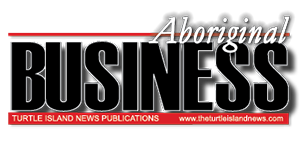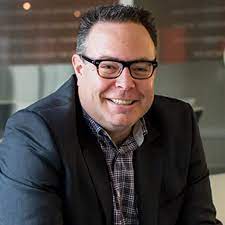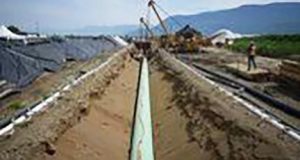By Jessica R. Durling
Local Journalism Initiative Reporter
For entrepreneurs, First Nation investment opportunities are a way to keep business and money in the local economy, according to Sean Willy, Des Nedhe Group’s president and CEO.
Willy gave a talk at the Humboldt and District Chamber of Commerce virtual luncheon on Sept. 9, focusing on why Indigenous economic development is good for a business.
Brent Fitzpatrick, the Chamber’s executive director, said the point of the event was to bring awareness to local business leaders about Indigenous opportunities.
“With the BHP announcement and the money that’s going to be invested by them in our region, there’s going to be a lot of partnerships that’s going to be made and with it opportunity,” Fitzpatrick said. “I think that’s the core message of what Sean brought.”
Established in 1991 by English River First Nation, the Des Nedhe Development Corporation was designed to grow sustainable employment and business opportunities for local community members.
Currently, they have investments in JNE Welding, ACLP, NRT, Synergy 5 and Tamarack Mining Services. Companies owned by the corporation include TRON Construction, MTM Mining, Iron Trail JV, MakawaJV, Neetah LP, SAGE Power, Creative Fire, as well as retail and property management.
“Saskatchewan has a lot of great businesses that have grown up in this province with the help of the uranium industry, potash industry, and agricultural industry. A lot of these people now are starting to retire and they want to cash out on their business,” Willy said.
“So you don’t have very many options in Saskatchewan, but one of the options that’s often overlooked is First Nation investment.”
Willy brought up JNE Welding as an example. JNE Welding is a Saskatoon based company founded in 1980 by Jim Nowakowski, now owned by Des Nedhe. Willy said when Nowakoski was looking to sell the operation, Nowakoski had the choice to either sell it to him and his colleague representing Des Nedhe, or a couple of Albertan firms.
“By selling it to two First Nations he kept that money and kept the money that spun off of JNE in the Saskatchewan economy. You’re going to start to see more and more opportunities opening up and entrepreneurs have a choice,” Willy said.
“Of course they should always try to get the best deals for themselves, but don’t ignore the First Nation investment opportunities out there that can keep businesses essentially local.”
Willy said if he could give one piece of advice for Indigenous community members wanting to be successful in business, it would be “business is not quick.”
“It follows Indigenous principles on generational thinking. It’s about keeping working capital in and getting out and slowly marketing yourselves,” he said.
“The first job you usually get is because somebody is going to be giving you an opportunity, it’s a leap of faith, they trust you.
The second job is going to be based on that first job you did. I think it’s that focus on the quality, focus on the timelines, focus on the cost competitiveness of that opportunity and really define what your value proposition is.”
Willy added that he often hears from leaders that sometimes Indigenous people “put too much of the story” into the pitch, while what corporate Canada really wants to know is what the value proposition will be for the entrepreneur.
Jessica R. Durling, is a Local Journalism Initiative reporter who works out of the HUMBOLDT JOURNAL. The Local Journalism Initiative is funded by the Government of Canada. ocal Journalism Initiative Reporter
 Aboriginal Business Magazine Your source for Aboriginal Business News
Aboriginal Business Magazine Your source for Aboriginal Business News



